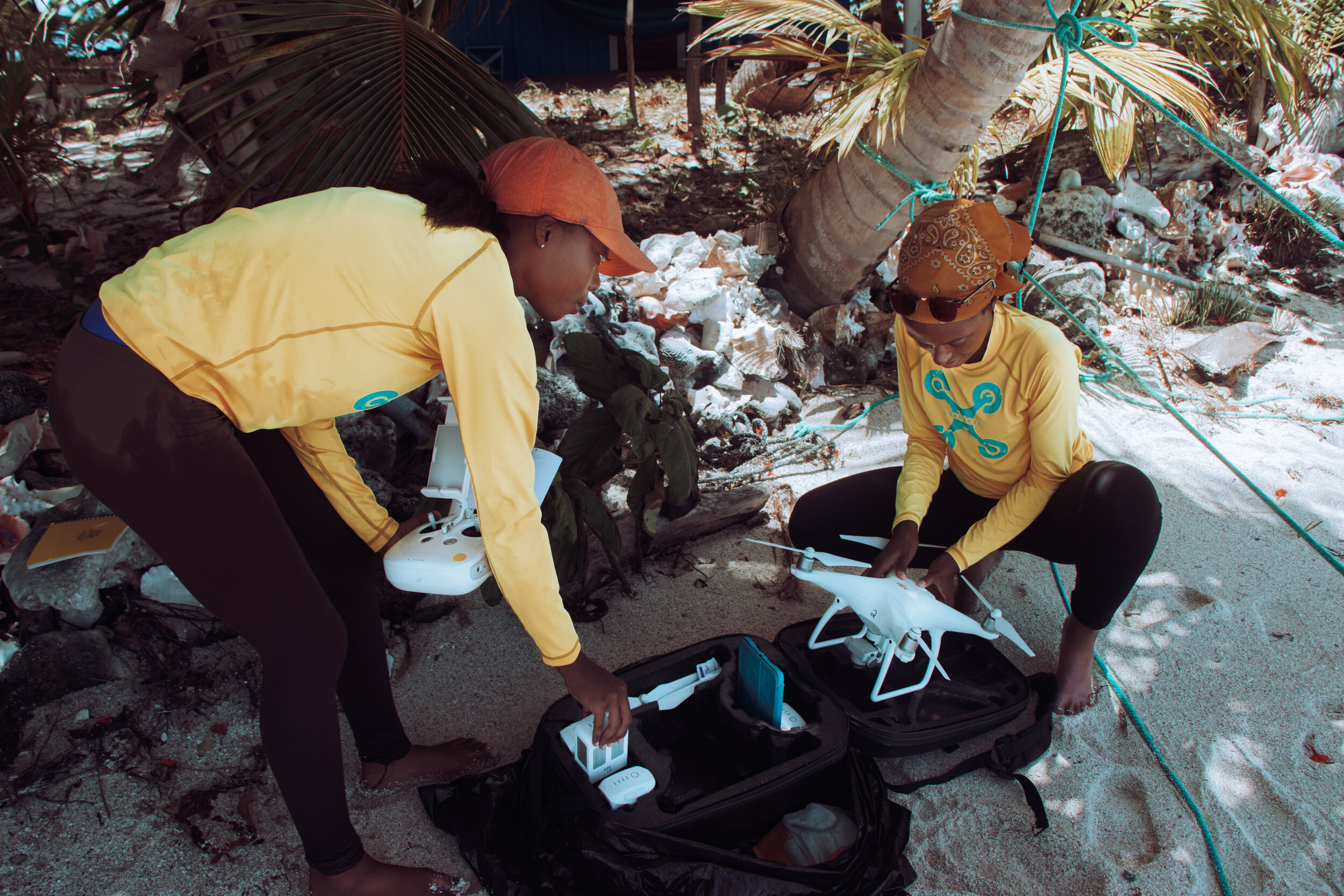
NSF REU & RET Site
Funded international research experiences for undergraduates & K-12 educators
Grant Update:
We are not offering a program in Summer 2025. We hope to bring a host a new REU Site in future years.
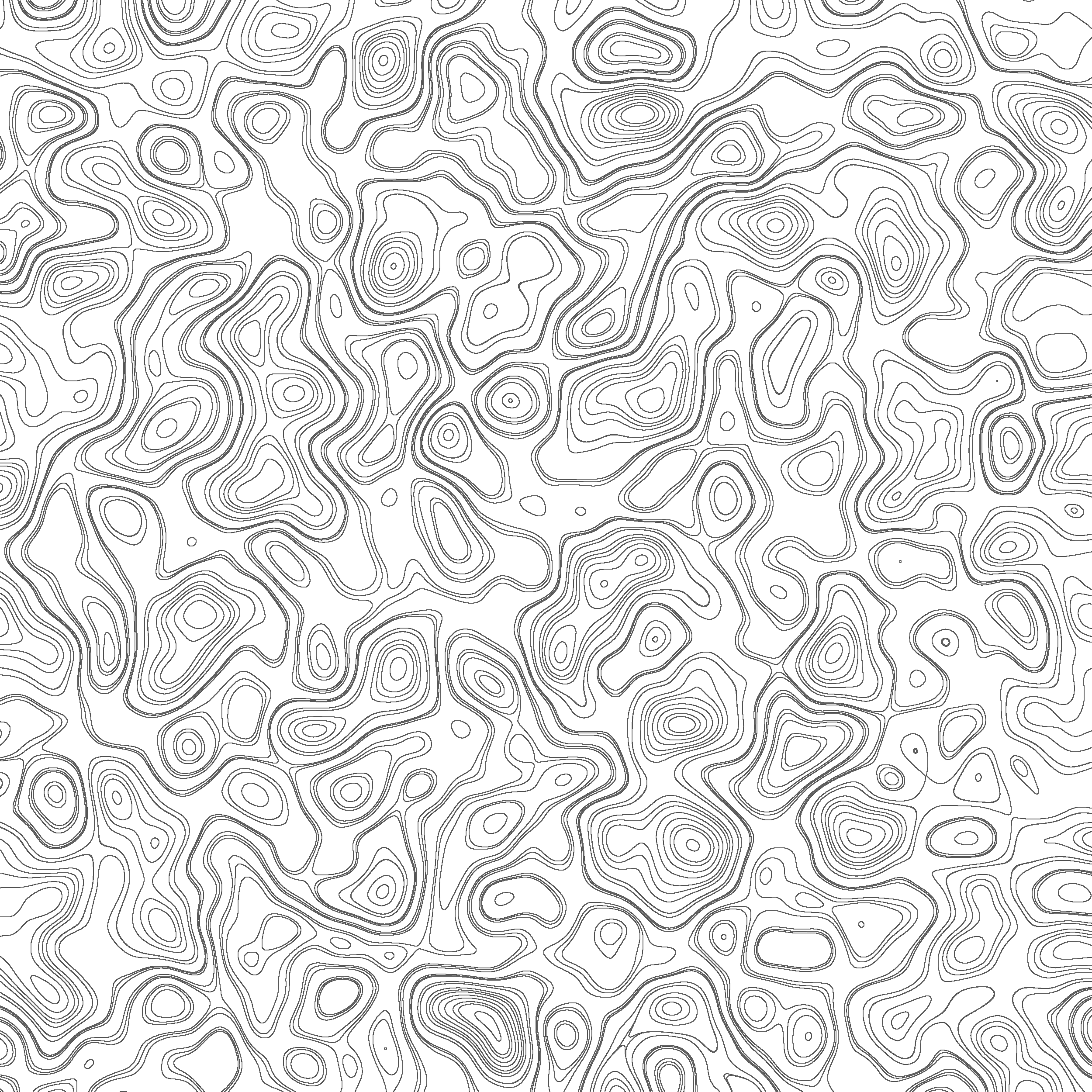
About the Project
With U.S. National Science Foundation support, we provide funded international experiences in Orlando & Belize for U.S. undergraduates and K-12 educators in community GIS and citizen science. With additional resources we also fund University of Belize students.
Fully Funded Summer Research Experience:
$4200 stipend for the 7 week REU/RET Site
All expenses paid for the UCF Orlando portion of the trip/travel and for all Belize fieldwork travel
Up to $750 for post-REU/RET conference presentations and/or industry visits
What We Do:
We emphasize community-based research while preparing students for careers in GIS, geospatial technologies, geography, sociology, geosciences, education, community development, public health, and land use planning. We also prepare K-12 teachers to incorporate geospatial technologies into their classrooms to inspire science's next generation.
Who We Support:
As an NSF-funded program, we are open to all U.S. citizens and permanent residents. We are interdisciplinary emphasizing community geography, community GIS, and citizen science through mixed methods, including sketch mapping, mobile mapping applications, in-depth interviews, GIS, spatial analysis, and drones.
Our REU Site supported students from several disciplines including geography, GIS, environmental studies, sociology, anthropology, biology, chemistry, political science, business/economics, education, and more.
Fieldwork & Research Directions:
Our primary field site since 2016 is Hopkins Village, Belize. We have two research areas and one education track.
Research Track 1: Leveraging community geography and GIS to map experiences with flooding.
Research Track 2: Leveraging community geography and GIS to reduce waste and prevent marine debris.
Learn more details about research directions
Community Geography & GIS Abroad
We define community geography in international settings as “a process, set of methods, and collaborative framework that utilizes spatial thinking and geographic approaches which enable academics and communities to engage in inclusive, mutually beneficial, shared research experiences. These experiences are designed to understand and visualize the wants, needs, and future visions of willing communities” (Hawthorne, Solis, et al. 2015: 24).
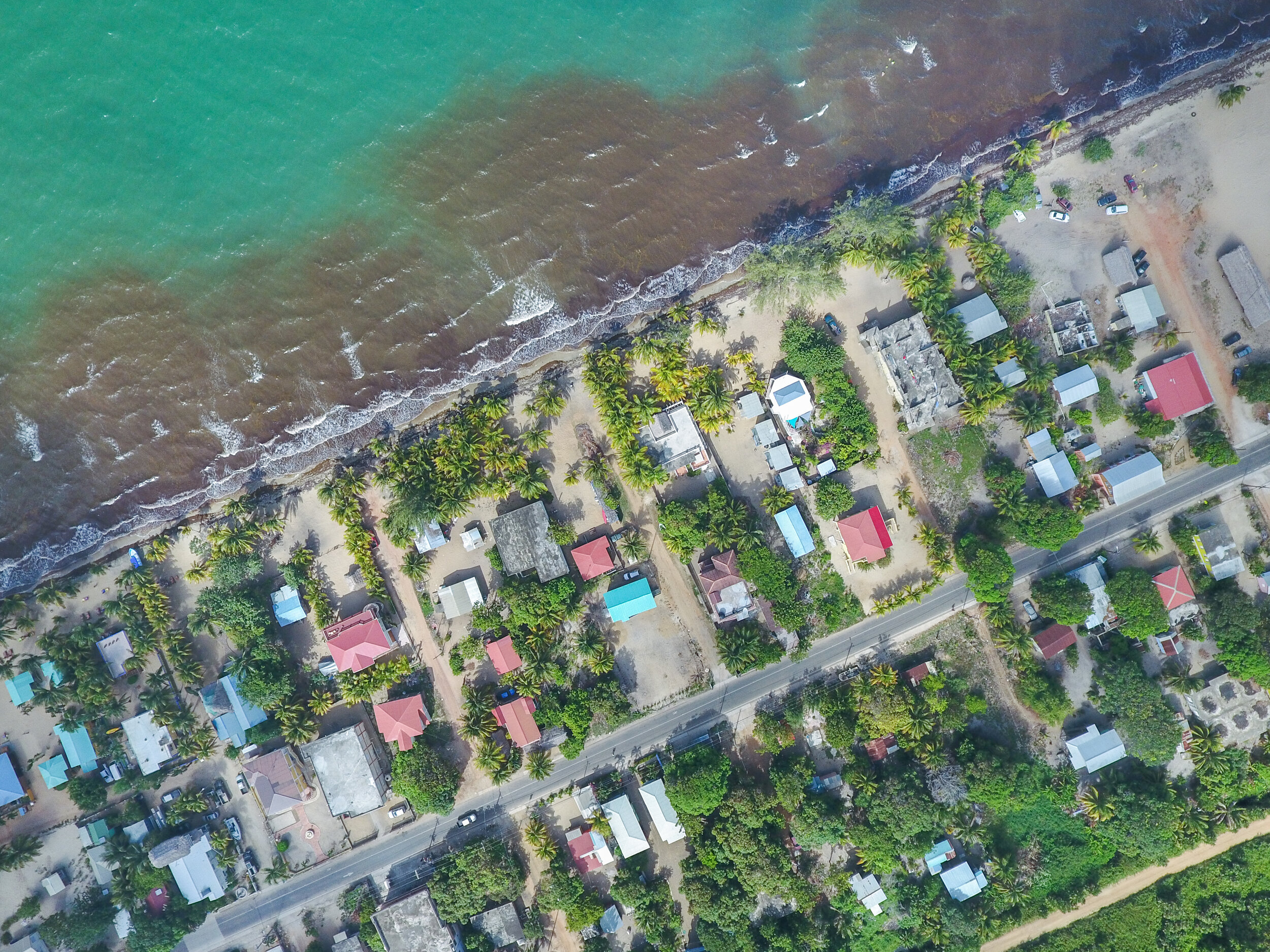
Key Research Questions
Where are new flooding hotspots occurring related to impervious surface runoff and increased development?
Where are litter and beach debris most abundant throughout study site?
How can communities and researchers work together to amplify local voices in science?

Project Goals
We provide transformative, community-based research experiences for undergraduates and K-12 teachers.
We develop new researchers with an emphasis on broadening participation in science.
We engage undergraduates and K-12 teachers in all aspects of the research process from conceptualization to dissemination and allow for co-creation of the process.
We cultivate an appreciation for multi-disciplinary research, complementary research methods and theoretical perspectives while working with diverse teams.
We examine social and environmental Issues in an international setting.
We engage in action-oriented, community-based research with populations in Belize.
We prioritize local knowledge in our mapping practices to share the stories and knowledge of community members in science.
We work with communities, rather than in communities to visualize their concerns and opportunities for change.
We communicate our science with and to All audiences.
We share our conceptual frameworks, methods and data through publications, presentations, community meetings, blogs, social media, art, and dialogue.
We emphasize visual communication through mapping to draw audiences into deeper conversations about our science.
We share our work and training documents in open, accessible formats where allowed.

Amplifying Community Voices in Science
We amplify the voices of All communities and prioritize local knowledge about social and environmental Issues to enhance science.
We train and work with undergraduates, citizen scientists and K-12 educators to re-imagine the next generation of science as one where people-centered approaches to knowledge production become the rule rather than the exception.

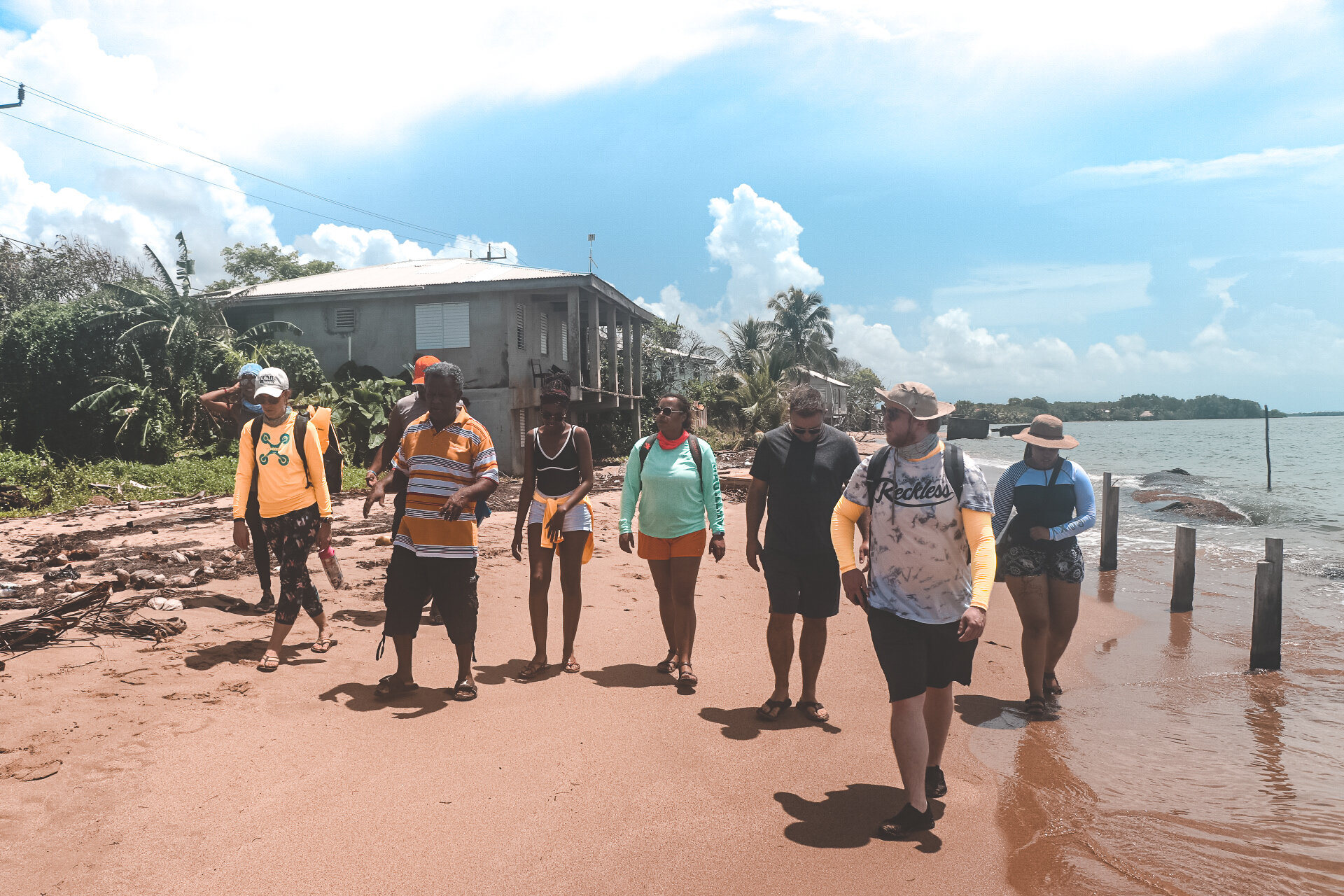

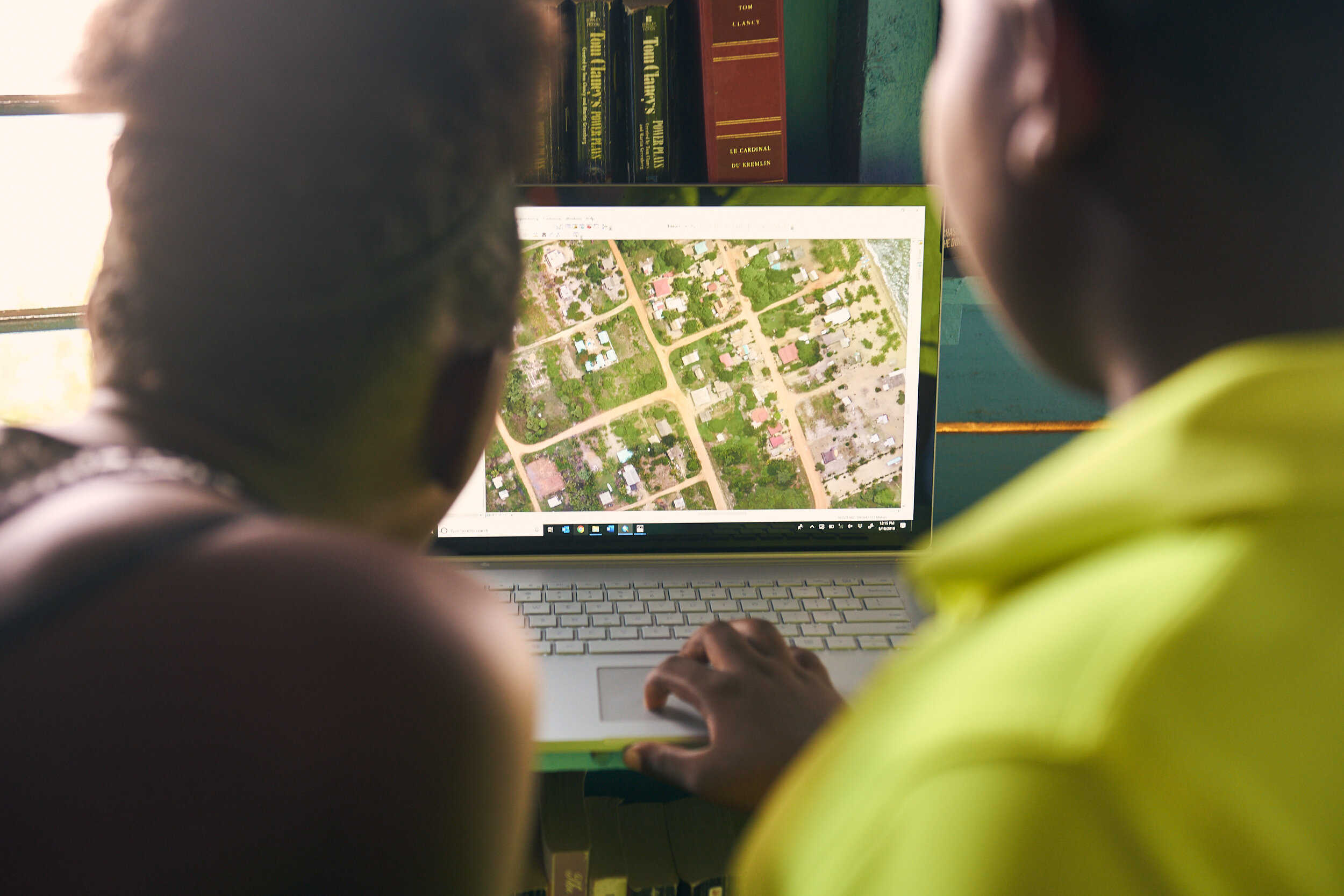


Funding through the National Science Foundation
The 2020-2023 Research Experiences for Undergraduates (REU) and Research Experiences for Teachers (RET) Site work was part of a NSF grant led by PI Dr. Timothy L. Hawthorne, Co-PI Dr. Lain Graham (2022-2024) and Co-PI Dr. Hannah Torres (2020-2021). The 2016-2020 REU Site was funded by a NSF grant to PI Hawthorne and Co-PI Dr. Christy C. Visaggi. The 2018-2020 REU Site also included an additional REU supplement grant to PI Hawthorne.
Disclaimer
This project was funded by National Science Foundation Social, Behavioral and Economic Sciences Office of Multidisciplinary Activities REU Program Award #1950227. It was previously funded through the same NSF program by Award #1560015. Any opinions, findings, and conclusions or recommendations expressed in this material are those of the author(s) and do not necessarily reflect the views of the National Science Foundation.

